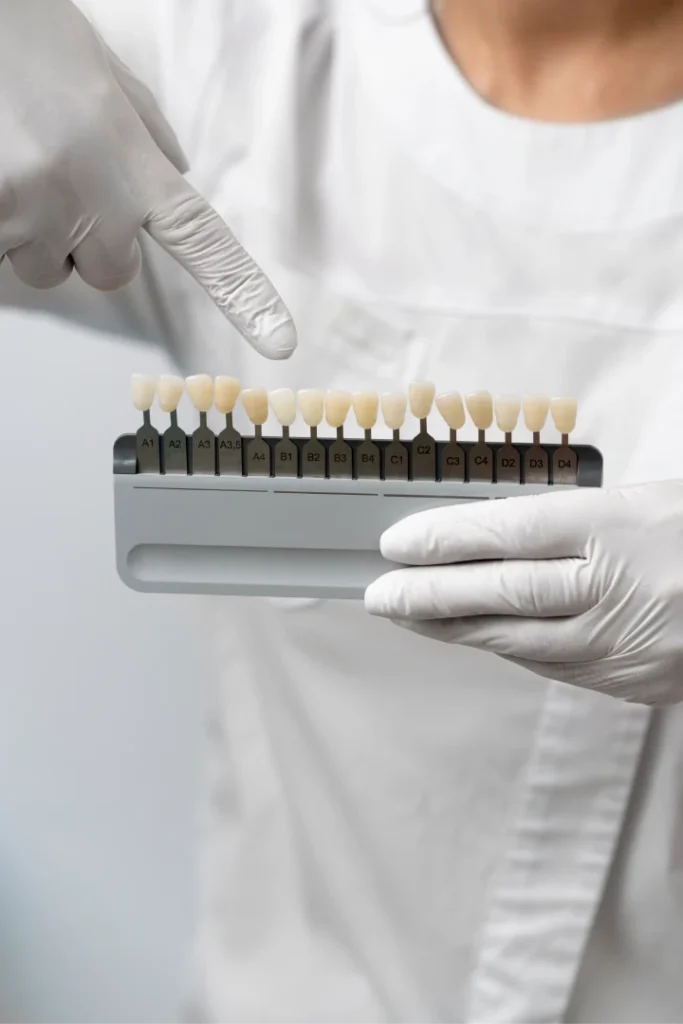Understanding Periodontics: A Comprehensive Guide
Exploring the Field of Periodontics
Periodontics is a specialized branch of dental medicine focused on the health of your gums and supporting structures around the teeth. Periodontics addresses various aspects of gum disease, periodontal treatment, and cosmetic procedures to enhance gum tissue.
The Importance of Periodontics in Dental Health
Periodontal disease, commonly known as gum disease, affects millions worldwide and can lead to tooth loss or oral inflammation if left untreated. Periodontists are crucial in diagnosing, preventing, and treating gum disease to maintain good oral health.
Periodontists are specially trained to diagnose and treat gum disease, using procedures such as:
Root planing
Gum grafts
Periodontal surgery
To address periodontal pockets and bleeding gums. They also collaborate with general dentists to develop comprehensive treatment plans tailored to each patient’s needs, which may include dental implants and bone grafts to restore lost teeth and bone structure.
Periodontal Disease
This disease affects the gums and bones supporting the teeth. It happens when plaque, a sticky film of bacteria, builds up on your teeth and along the gum line. This can cause inflammation and infection in the gums, leading to symptoms like:
bleeding gums
bad breath
loose teeth
If left untreated, it can progress and eventually cause big teeth loss. Deep pockets and loose teeth are signs of advanced periodontal disease and require prompt attention.
Blood vessels are vital in maintaining oral health, ensuring proper circulation to the gums and surrounding tissues.
Periodontists can perform procedures like scaling and root planing to clean the roots of the teeth and reduce pocket depth, helping to stabilize loose teeth and prevent further bone loss.
However, with regular dental checkups and good oral hygiene habits like brushing and flossing, you can prevent and manage periodontal disease, keeping your gums and teeth healthy for a lifetime.
The Importance of the Periodontal Ligament
The periodontal ligament is like a shock absorber for your teeth, anchoring them securely in the alveolar bone. Without this ligament, our teeth could not withstand the forces of chewing and speaking. When the ligament is healthy, your teeth remain stable and well-supported. However, if it becomes damaged or inflamed, it can lead to tooth mobility and eventual loss.

Periodontal Treatment for Gum Disease
Additionally, periodontal treatment may include medications or antibiotics to reduce inflammation and control infection. In more severe cases, surgical procedures like gum grafts or flap surgery may be necessary to repair damaged gum tissue and bone.
It’s essential to make regular checkups with your dentist to catch gum disease early and start treatment as soon as possible.

Advanced Procedures in Periodontics
From regenerative procedures to the placement of dental implants, periodontists offer a wide range of treatments to address various periodontal conditions. These procedures aim to completely eradicate periodontal disease and restore oral health, even in extensive bone loss or tooth loss cases.
Cosmetic Periodontal Procedures
In addition to treating gum disease, periodontists also perform cosmetic periodontal procedures to improve the appearance of your smile. These may include:
Gum reshaping: where excess gum tissue is removed to create a more balanced and symmetrical appearance.
Gum graft: where tissue from another part of the mouth is used to cover exposed roots or increase gum volume in areas where it's lacking.
Connective tissue grafts: cover exposed tooth roots, protect against further gum recession, and enhance the overall aesthetics of the smile
These procedures often address issues like uneven gum lines, exposed roots, or gummy smiles.
The Role of Bone Grafts
This common procedure is used to rebuild bone lost due to periodontal disease or trauma. Periodontists perform bone grafts to create a stable foundation for dental implants or other restorations. The alveolar bone surrounds and supports the teeth, providing them a stable foundation.
Dental Implants as a Treatment Measure
Dental implant procedures are commonly used to replace missing teeth and restore smiles. A small titanium post is surgically inserted into the jawbone during a dental implant surgery to act as a foundation for a replacement tooth or dental crown.
This post integrates with the bone over time, providing a secure anchor for the new tooth. Dental implant procedures are performed by skilled dentists or oral surgeons in our office.
We are proud to offer single or multiple implants in our dental studio. The process typically involves several steps, including:
The placement of the implant
Healing time for the jawbone to fuse with the implant
The attachment of a custom-made dental crown or prosthetic tooth
Diagnosis is the first step in developing a comprehensive treatment plan. Periodontists carefully evaluate the condition of the teeth, gums, and supporting structures to determine the best course of action. Treatment plans may include a combination of procedures tailored to each patient's needs.
A skilled dentist or periodontist can expertly navigate the placement of dental implants to restore functionality and aesthetics.

Collaboration Between Periodontists and General Dentists
Periodontists often work closely with general dentists to develop comprehensive treatment plans tailored to each patient’s needs. Regular checkups and collaboration between these dental specialists are essential for maintaining good oral health and preventing periodontal disease.
Periodontists receive extensive training beyond dental school to specialize in prevention, diagnosis, and treatment. They are experts in performing procedures such as root planing, root surface debridement, and gum graft to address gum disease and prevent further bone resorption.
Dental specialty training equips dentists with advanced skills to address complex oral conditions like inflammatory diseases. Patients can trust their dentist or periodontist to provide expert care and guidance for their oral healthiness.
The Latest Techniques and Technologies in Periodontics
With advances in dental technology, periodontists are equipped with the latest techniques and tools to provide effective and comfortable patient treatment. From laser therapy to minimally invasive procedures, periodontists utilize cutting-edge technology to deliver optimal results.
Prevention: The Best Medicine
Prevention is always better than treatment when it comes to periodontal disease. Good oral hygiene habits, regular dental checkups, and professional cleanings are essential for preventing periodontal disease and maintaining healthy teeth and gums.
In Conclusion
By preventing and treating gum disease, periodontics helps patients maintain healthy teeth, gums, and overall oral health, reducing the risk of systemic diseases and improving quality of life. Regular visits to a periodontist and practicing good oral hygiene habits are essential for preventing gum disease and ensuring a healthy smile for years to come.